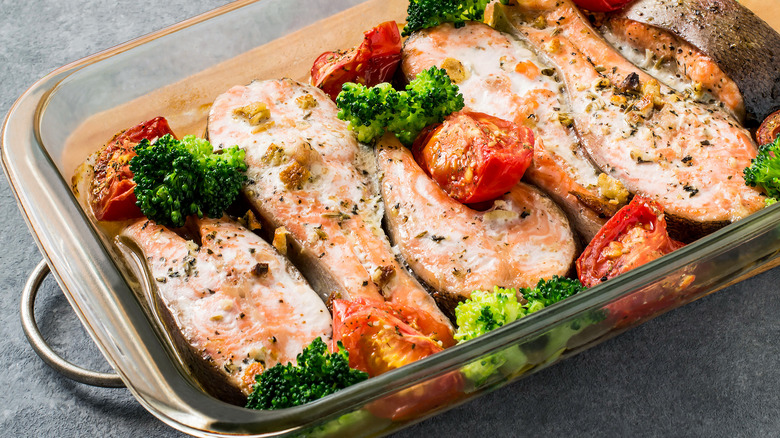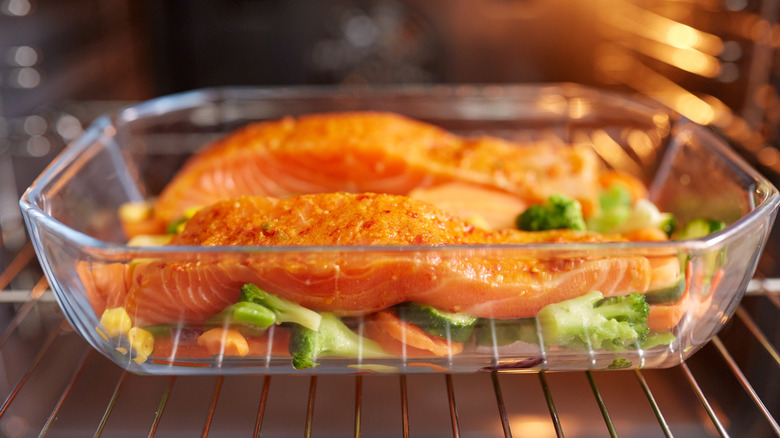Why You Should Bake Fish In A Glass Pan
If you love fresh fish, then chances are you've made friends with your local fishmonger — or at least the grocery store fish counter clerk — and regularly cook up these finned delicacies at home. From pan-seared black cod with morels to poached black bass to Parmesan crusted tilapia, there seem to be as many varieties of fish as there are ways to prepare them. But let's be real: Many of us, when cooking fish at home, are most likely to opt for baking it, as the method is fairly foolproof and doesn't dirty too many dishes.
Here at Tasting Table, we love baking many varieties of fish, from cod to mahi mahi to orange roughy. One of the healthiest methods of preparing fish, according to Healthline (because the fish is able to better retain its nutrients), baking is also super quick, with most types of fish filets ready in under 10 minutes (via Better Homes & Gardens). But if you haven't baked any fish lately, you might be wondering: What's the best type of pan to use?
Let us settle that for you right now.
A glass baking dish retains heat well and helps cook fish evenly
Most of us tend to have two types of baking dishes stocked in our kitchens: metal, aluminum, and glass. And although you might think that these materials are pretty much interchangeable when it comes to baking everything from muffins to pot roast, you'd be wrong: According to Bon Appétit, metal baking pans turn out exemplary breads, brownies, cookies, and cakes, while glass baking pans are best suited to lasagnas, casseroles, and bread pudding. One more item you can add to that list? Fish.
As the outlet explains, while metal is a conductor and heats up (and cools down) quickly, glass is an insulator, meaning that it heats up slowly, retains the heat well, and cools down slowly. While this property can mean overly intense heat for desserts and other baked goods, it's a great one for fish, which benefits from the even heat of glass, according to The Healthy Fish. Another plus for baking fish in glass is that while metal can react with acidic ingredients, causing off flavors, glass won't — meaning you can pile your baked cod with tomatoes, lemon juice, and olives without worrying about metal's reactivity (via Bon Appétit).
So next time baked fish is on the menu, reach for your glass baking dish.

